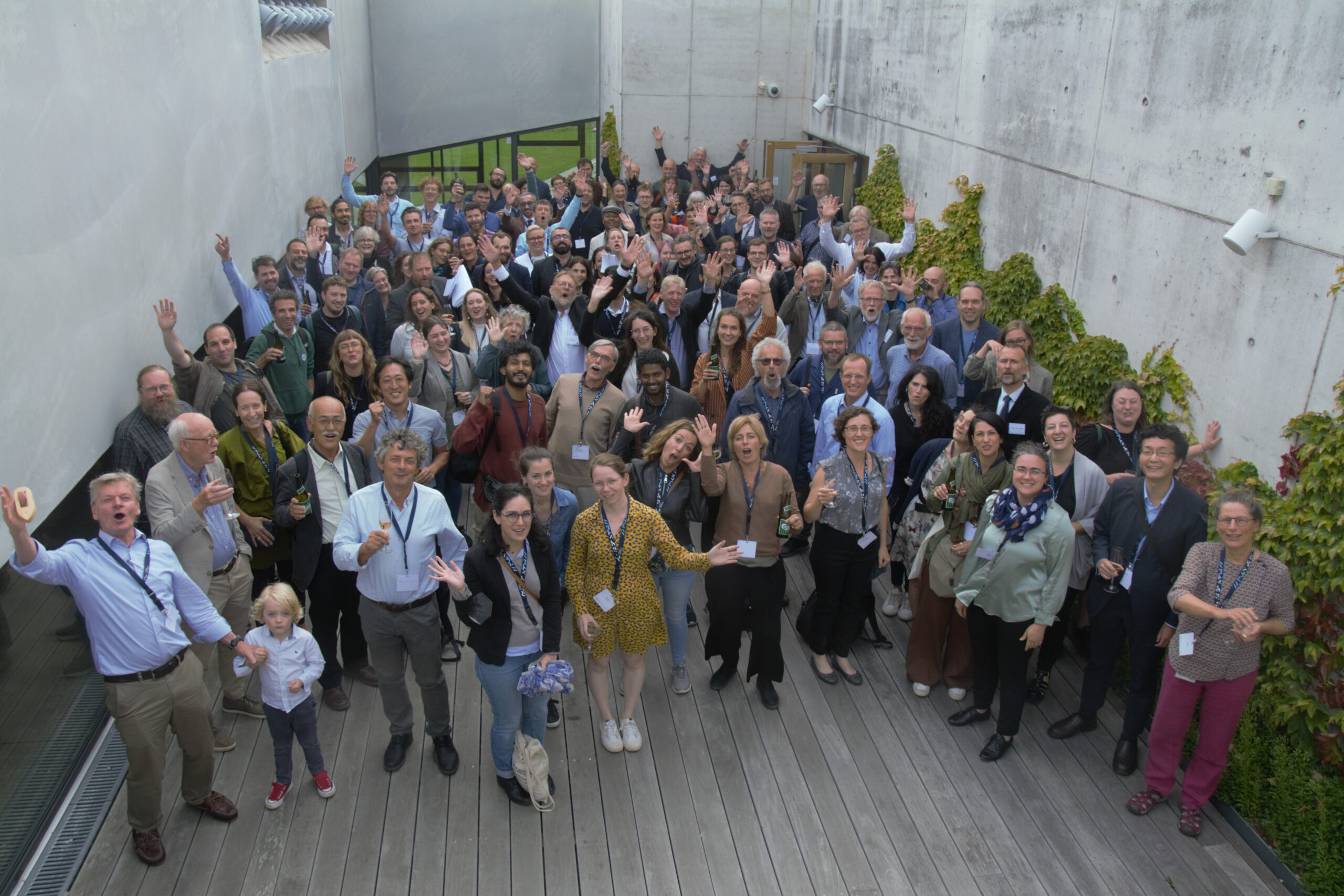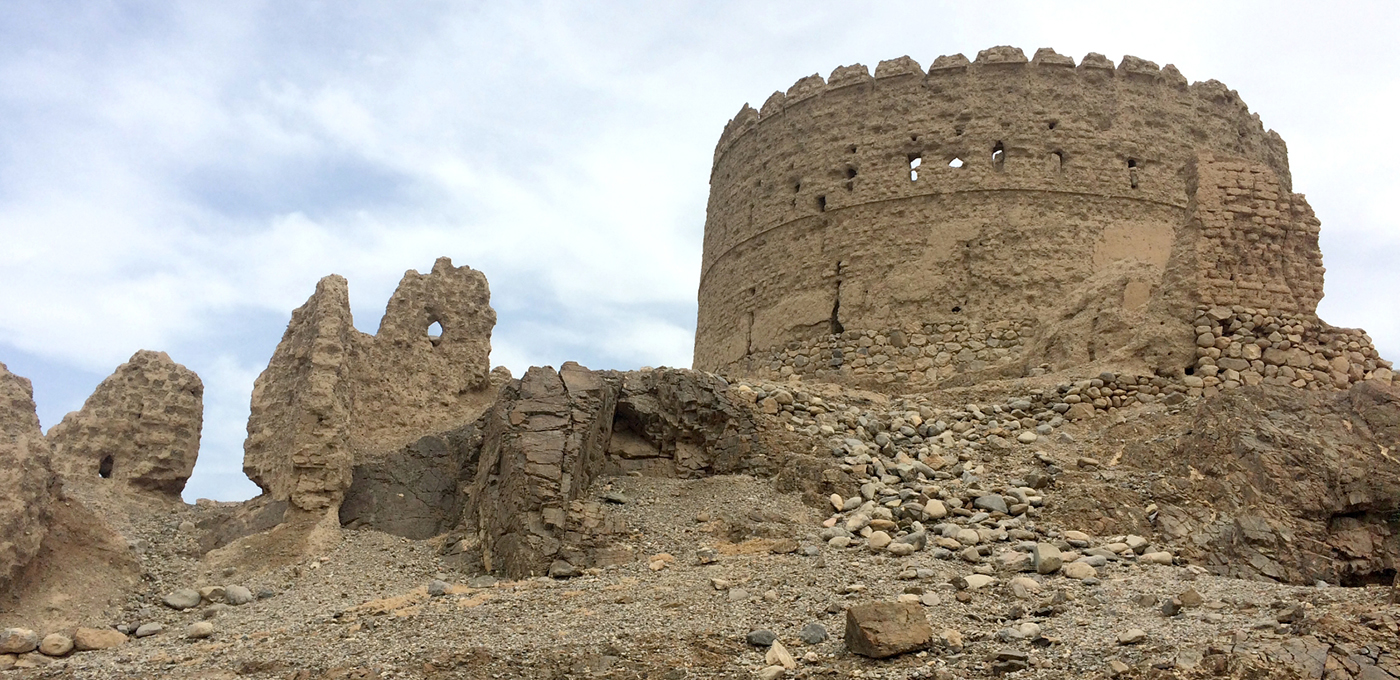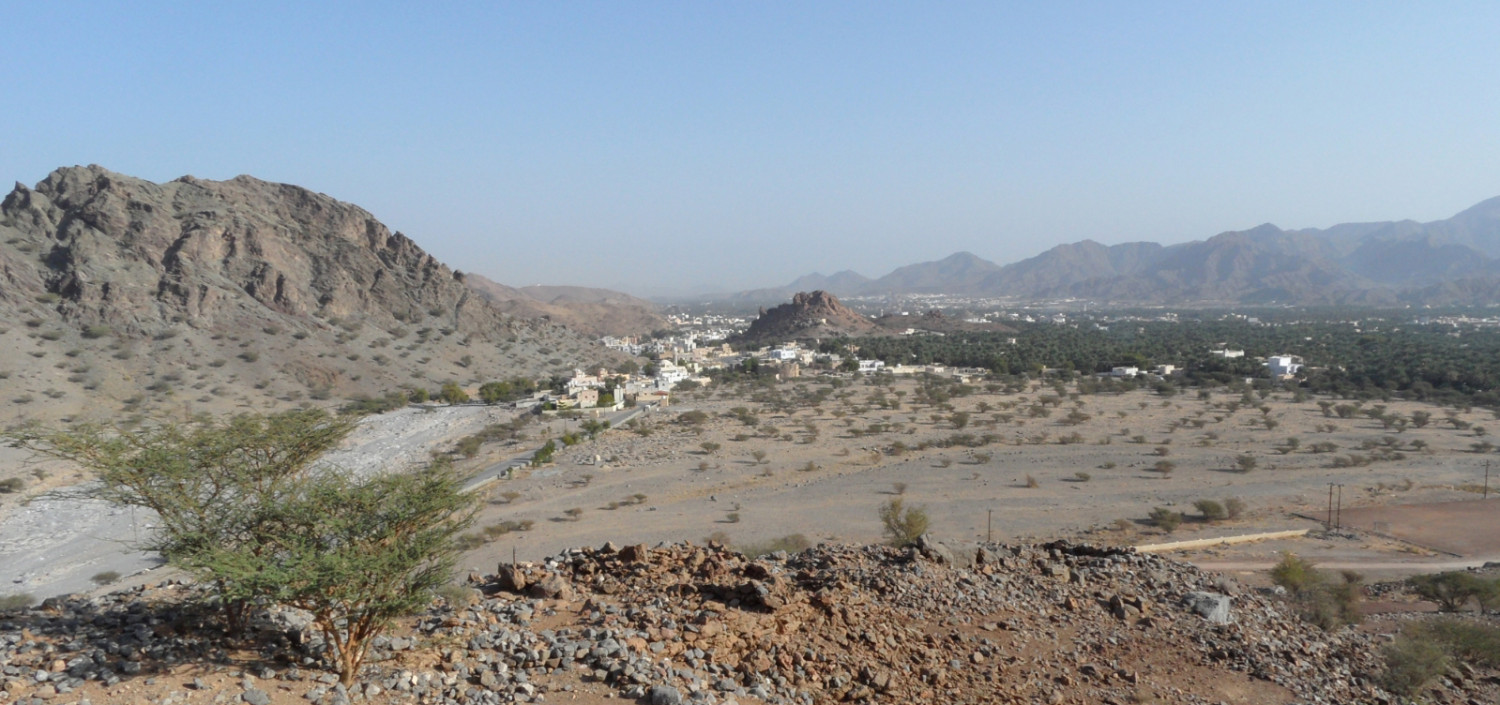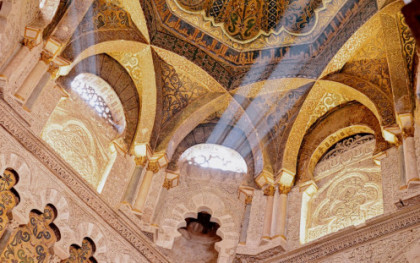
The 58th Seminar for Arabian Studies will take place in Abu Dhabi, UAE, Friday, 12th December to Sunday, 14th December, 2025.
Call for Papers
If you wish to offer a paper, please send an abstract to seminar.arab@theiasa.com on or before the 13 June 2025 for consideration by the Steering Committee.
Do not send abstracts to any other e-mail address. Papers submitted should address a research approach that engages with answering unknown questions or challenge existing assumptions as opposed to papers that strictly report on empirical observations.
Abstracts should include what the proposed paper intends to cover, an outline of the approach it will take and an indication of the significance of the topic. Abstracts can include up to three relevant bibliographical references. All abstracts must also include 1) the title of the proposed paper; 2) name(s) and affiliation(s) of the contributor(s); 3) five keywords. 4) whether it is to be considered short rapportage or synthetic overview. Abstracts are limited to 200 words maximum (not including bibliographic references) and abstracts that are significantly over the word limit may be rejected. Please submit your abstracts as Word documents only.
Short rapportage presentations will be 15 minutes of speaking time including questions and synthetic overview presentations will be 25 minutes of speaking time with an extra 5 minutes for questions. They must be delivered in English and submissions for publication in PSAS must be made in English. Due to programme time constraints, and the ever-increasing number of abstracts received, there is no guarantee that all papers will be accepted. The Steering Committee will select those abstracts that are most scholarly, with a focused statement of thesis or importance, clear aims and methodology, well-organised research data, specified sources, and coherent conclusions. As in previous years, the Committee will normally only accept one abstract from any given project.
Only those papers that are actually presented at the Seminar will be considered for publication in the Proceedings of the Seminar for Arabian Studies, and they will be subject to editorial and peer review.
The Seminar Committee look forward to hearing from you.
Paris, 2024
The programme can be found here:
SAS 2024 Detailed Programme 1 [Panoptic]
SAS 2024 Detailed Programme 2 [Enlarged]
The abstracts can be found here:
SAS 2024 – Abstracts – Special Sessions [Arabic]
Changes to the format of papers at the Seminar for Arabian Studies, Paris 2024
The Seminar Committee has decided to change the way papers are given at the Seminar. The changes will be introduced for the Paris Seminar in June 2024. They follow from the strong feeling amongst Committee members that too much time is dedicated to descriptive reporting of fieldwork (rapportage) at the Seminar, and not enough to synthetic review, broader research questions and discussion. This feeling was backed by Felix Riede’s comments at the end of the Århus Bronze-Age session in 2023. This year we will therefore accept the following two types of paper:
Short rapportage: Such papers will be focussed on reporting the results of current fieldwork (or labwork) of any sort. Presentation of the wider academic and geographical context should be brief and acknowledgments should be listed in a single, brief final slide. The paper should focus on describing the work that has been done and its results. Short rapportage papers will be allocated 15 minutes speaking time (including questions).
Synthetic overview: Such papers will be expected to provide a review and/or analysis of a wider research question of any sort. Detailed context is required and the abstract will need to set out clearly the scope and aims of the paper and outline the data set or evidence on which it will be based. Such papers will be allocated 25 minutes with 5 minutes for questions.
All abstracts will be allocated to one of these types.
Those submitting abstracts will therefore be required to state clearly which type of paper they are proposing. If it is a synthetic overview, then the requirements set out above will need to be set out in the abstract, this will be scrutinised by the Committee. It is hoped that this format will allow more time for discussion sessions.
Both types of papers will be acceptable for publication in PSAS in the normal way. It may be possible to allow a longer word limit for synthetic overview papers, this is a matter that is still under discussion.
Aarhus, 2023
From 4 – 6 August 2023, the 56th Seminar for Arabian Studies took place at Moesgaard Museum and Aarhus University, Denmark. Last year they celebrated the 70th jubilee of the pioneering Arabian Gulf expeditions (est. 1953-). The seminar was jointly organized by the department of Archaeology at Aarhus University and the Orient Department at Moesgaard Museum and is under the patronage of the International Association for the Study of Arabia.
The 2023 Seminar was generously supported by the C. L. David Foundation, the Carlsberg Foundation, the Frimodt-Heineke Foundation, the Dr M. C. Holsts Foundation, and the Beatrice de Cardi Fund of the Society of Antiquaries of London.
The programme is available here: IASA Seminar Programme 1 Aug rev
Abstracts are available here:
IASA Seminar Abstracts 2023 rev
Special Session 2023 Abstracts. docx
The Seminar for Arabian Studies is the only annual international forum for the presentation of the latest academic research on the Arabian Peninsula. Topics covered include archaeology, history, epigraphy, languages, literature, art, culture, ethnography, and geography from the beginnings to the present or, in the case of political and social history, to the end of the Ottoman Empire (1922).
The Seminar has had an exemplary track record of timely publication of its proceedings and papers will, after peer-review, be eligible for publication in the 54th Proceedings of the Seminar for Arabian Studies (2024).
A brief history of the Seminar for Arabian Studies
The Seminar began as an informal study group set up in 1968 at the time of the first official British archaeological survey in Saudi Arabia, led by Peter Parr of the Institute of Archaeology, University of London. The purpose of the group was to promote archaeological research in the Arabian Peninsula and, after an initial meeting, the group formed itself into the Arabia Society, with John Dayton as Honorary Secretary.
After two relatively small conferences in 1969 and another two in 1970, the Seminar for Arabian Studies, as it had now become, settled into a pattern of annual conferences, of ever increasing size, in 1971, 1972, and 1973. From 1974 onwards, the present pattern had been established of a three-day conference in July, with the publication of its Proceedings in time for the conference of the following year. For many years, the conference circulated between London, Oxford, and Cambridge with occasional visits to Durham, Edinburgh and Manchester. From 2002 to 2018 it was hosted in London by the British Museum. In 2019 the Seminar took place in Leiden, Netherlands and in 2020 will be held in Cordoba, Spain.
Summaries of some of the papers presented at the first Seminar and a list of those given at the second (in January and June 1969 respectively) were published in the Bulletin of the Institute of Archaeology, University of London 8-9, 1968-1969: 243-258. These were later republished, together with papers from the third to sixth Seminars (the 3rd Seminar held in January 1970, the 4th in June 1970, the 5th in September 1971, and the 6th in September 1972) in a cumulative volume together with the Proceedings of the Seminar for Arabian Studies vol. 1-3 in 1973. This was in addition to the separate volumes of PSAS 1 (1971), 2 (1972) and 3 (1973).
From volume 1 (1971), containing the papers from the fourth Seminar held in Cambridge in June 1970, the Proceedings have been published each year and 2020 saw volume 50, containing the papers from the 53rd Seminar held in the University of Leiden in 2019.

The 58th Seminar for Arabian Studies will take place in Abu Dhabi, UAE, from Friday, 12th of December to Sunday, 14th of December, 2025.
Further details will follow shortly.
The 57th Seminar for Arabian Studies was held in Paris 27th-29th June 2024
The programme can be found here:
SAS 2024 Detailed Programme 1 [Panoptic]
SAS 2024 Detailed Programme 2 [Enlarged]
The abstracts can be found here:
SAS 2024 – Abstracts – Special Sessions [Arabic]
Changes to the format of papers at the Seminar for Arabian Studies, Paris 2024
The Seminar Committee has decided to change the way papers are given at the Seminar. The changes will be introduced for the Paris Seminar in June 2024. They follow from the strong feeling amongst Committee members that too much time is dedicated to descriptive reporting of fieldwork (rapportage) at the Seminar, and not enough to synthetic review, broader research questions and discussion. This feeling was backed by Felix Riede’s comments at the end of the Århus Bronze-Age session in 2023. This year we will therefore accept the following two types of paper:
Short rapportage: Such papers will be focussed on reporting the results of current fieldwork (or labwork) of any sort. Presentation of the wider academic and geographical context should be brief and acknowledgments should be listed in a single, brief final slide. The paper should focus on describing the work that has been done and its results. Short rapportage papers will be allocated 15 minutes speaking time (including questions).
Synthetic overview: Such papers will be expected to provide a review and/or analysis of a wider research question of any sort. Detailed context is required and the abstract will need to set out clearly the scope and aims of the paper and outline the data set or evidence on which it will be based. Such papers will be allocated 25 minutes with 5 minutes for questions.
All abstracts will be allocated to one of these types.
Those submitting abstracts will therefore be required to state clearly which type of paper they are proposing. If it is a synthetic overview, then the requirements set out above will need to be set out in the abstract, this will be scrutinised by the Committee. It is hoped that this format will allow more time for discussion sessions.
Both types of papers will be acceptable for publication in PSAS in the normal way. It may be possible to allow a longer word limit for synthetic overview papers, this is a matter that is still under discussion.
Aarhus, 2023
From 4 – 6 August 2023, the 56th Seminar for Arabian Studies took place at Moesgaard Museum and Aarhus University, Denmark. Last year they celebrated the 70th jubilee of the pioneering Arabian Gulf expeditions (est. 1953-). The seminar was jointly organized by the department of Archaeology at Aarhus University and the Orient Department at Moesgaard Museum and is under the patronage of the International Association for the Study of Arabia.
The 2023 Seminar was generously supported by the C. L. David Foundation, the Carlsberg Foundation, the Frimodt-Heineke Foundation, the Dr M. C. Holsts Foundation, and the Beatrice de Cardi Fund of the Society of Antiquaries of London.
The programme is available here: IASA Seminar Programme 1 Aug rev
Abstracts are available here:
IASA Seminar Abstracts 2023 rev
Special Session 2023 Abstracts. docx
The Seminar for Arabian Studies is the only annual international forum for the presentation of the latest academic research on the Arabian Peninsula. Topics covered include archaeology, history, epigraphy, languages, literature, art, culture, ethnography, and geography from the beginnings to the present or, in the case of political and social history, to the end of the Ottoman Empire (1922).
The Seminar has had an exemplary track record of timely publication of its proceedings and papers will, after peer-review, be eligible for publication in the 54th Proceedings of the Seminar for Arabian Studies (2024).
A brief history of the Seminar for Arabian Studies
The Seminar began as an informal study group set up in 1968 at the time of the first official British archaeological survey in Saudi Arabia, led by Peter Parr of the Institute of Archaeology, University of London. The purpose of the group was to promote archaeological research in the Arabian Peninsula and, after an initial meeting, the group formed itself into the Arabia Society, with John Dayton as Honorary Secretary.
After two relatively small conferences in 1969 and another two in 1970, the Seminar for Arabian Studies, as it had now become, settled into a pattern of annual conferences, of ever increasing size, in 1971, 1972, and 1973. From 1974 onwards, the present pattern had been established of a three-day conference in July, with the publication of its Proceedings in time for the conference of the following year. For many years, the conference circulated between London, Oxford, and Cambridge with occasional visits to Durham, Edinburgh and Manchester. From 2002 to 2018 it was hosted in London by the British Museum. In 2019 the Seminar took place in Leiden, Netherlands and in 2020 will be held in Cordoba, Spain.
Summaries of some of the papers presented at the first Seminar and a list of those given at the second (in January and June 1969 respectively) were published in the Bulletin of the Institute of Archaeology, University of London 8-9, 1968-1969: 243-258. These were later republished, together with papers from the third to sixth Seminars (the 3rd Seminar held in January 1970, the 4th in June 1970, the 5th in September 1971, and the 6th in September 1972) in a cumulative volume together with the Proceedings of the Seminar for Arabian Studies vol. 1-3 in 1973. This was in addition to the separate volumes of PSAS 1 (1971), 2 (1972) and 3 (1973).
From volume 1 (1971), containing the papers from the fourth Seminar held in Cambridge in June 1970, the Proceedings have been published each year and 2020 saw volume 50, containing the papers from the 53rd Seminar held in the University of Leiden in 2019.

The 58th Seminar for Arabian Studies will take place in Abu Dhabi, UAE, from Friday, 12th of December to Sunday, 14th of December, 2025.
Further details will follow shortly.
The 57th Seminar for Arabian Studies was held in Paris 27th-29th June 2024
The programme can be found here:
SAS 2024 Detailed Programme 1 [Panoptic]
SAS 2024 Detailed Programme 2 [Enlarged]
The abstracts can be found here:
SAS 2024 – Abstracts – Special Sessions [Arabic]
Changes to the format of papers at the Seminar for Arabian Studies, Paris 2024
The Seminar Committee has decided to change the way papers are given at the Seminar. The changes will be introduced for the Paris Seminar in June 2024. They follow from the strong feeling amongst Committee members that too much time is dedicated to descriptive reporting of fieldwork (rapportage) at the Seminar, and not enough to synthetic review, broader research questions and discussion. This feeling was backed by Felix Riede’s comments at the end of the Århus Bronze-Age session in 2023. This year we will therefore accept the following two types of paper:
Short rapportage: Such papers will be focussed on reporting the results of current fieldwork (or labwork) of any sort. Presentation of the wider academic and geographical context should be brief and acknowledgments should be listed in a single, brief final slide. The paper should focus on describing the work that has been done and its results. Short rapportage papers will be allocated 15 minutes speaking time (including questions).
Synthetic overview: Such papers will be expected to provide a review and/or analysis of a wider research question of any sort. Detailed context is required and the abstract will need to set out clearly the scope and aims of the paper and outline the data set or evidence on which it will be based. Such papers will be allocated 25 minutes with 5 minutes for questions.
All abstracts will be allocated to one of these types.
Those submitting abstracts will therefore be required to state clearly which type of paper they are proposing. If it is a synthetic overview, then the requirements set out above will need to be set out in the abstract, this will be scrutinised by the Committee. It is hoped that this format will allow more time for discussion sessions.
Both types of papers will be acceptable for publication in PSAS in the normal way. It may be possible to allow a longer word limit for synthetic overview papers, this is a matter that is still under discussion.
Aarhus, 2023
From 4 – 6 August 2023, the 56th Seminar for Arabian Studies took place at Moesgaard Museum and Aarhus University, Denmark. Last year they celebrated the 70th jubilee of the pioneering Arabian Gulf expeditions (est. 1953-). The seminar was jointly organized by the department of Archaeology at Aarhus University and the Orient Department at Moesgaard Museum and is under the patronage of the International Association for the Study of Arabia.
The 2023 Seminar was generously supported by the C. L. David Foundation, the Carlsberg Foundation, the Frimodt-Heineke Foundation, the Dr M. C. Holsts Foundation, and the Beatrice de Cardi Fund of the Society of Antiquaries of London.
The programme is available here: IASA Seminar Programme 1 Aug rev
Abstracts are available here:
IASA Seminar Abstracts 2023 rev
Special Session 2023 Abstracts. docx
The Seminar for Arabian Studies is the only annual international forum for the presentation of the latest academic research on the Arabian Peninsula. Topics covered include archaeology, history, epigraphy, languages, literature, art, culture, ethnography, and geography from the beginnings to the present or, in the case of political and social history, to the end of the Ottoman Empire (1922).
The Seminar has had an exemplary track record of timely publication of its proceedings and papers will, after peer-review, be eligible for publication in the 54th Proceedings of the Seminar for Arabian Studies (2024).
A brief history of the Seminar for Arabian Studies
The Seminar began as an informal study group set up in 1968 at the time of the first official British archaeological survey in Saudi Arabia, led by Peter Parr of the Institute of Archaeology, University of London. The purpose of the group was to promote archaeological research in the Arabian Peninsula and, after an initial meeting, the group formed itself into the Arabia Society, with John Dayton as Honorary Secretary.
After two relatively small conferences in 1969 and another two in 1970, the Seminar for Arabian Studies, as it had now become, settled into a pattern of annual conferences, of ever increasing size, in 1971, 1972, and 1973. From 1974 onwards, the present pattern had been established of a three-day conference in July, with the publication of its Proceedings in time for the conference of the following year. For many years, the conference circulated between London, Oxford, and Cambridge with occasional visits to Durham, Edinburgh and Manchester. From 2002 to 2018 it was hosted in London by the British Museum. In 2019 the Seminar took place in Leiden, Netherlands and in 2020 will be held in Cordoba, Spain.
Summaries of some of the papers presented at the first Seminar and a list of those given at the second (in January and June 1969 respectively) were published in the Bulletin of the Institute of Archaeology, University of London 8-9, 1968-1969: 243-258. These were later republished, together with papers from the third to sixth Seminars (the 3rd Seminar held in January 1970, the 4th in June 1970, the 5th in September 1971, and the 6th in September 1972) in a cumulative volume together with the Proceedings of the Seminar for Arabian Studies vol. 1-3 in 1973. This was in addition to the separate volumes of PSAS 1 (1971), 2 (1972) and 3 (1973).
From volume 1 (1971), containing the papers from the fourth Seminar held in Cambridge in June 1970, the Proceedings have been published each year and 2020 saw volume 50, containing the papers from the 53rd Seminar held in the University of Leiden in 2019.

Special Sessions
As well as the wide range of subjects covered in its main sessions, the Seminar also offers the opportunity for more detailed discussion of a particular area of research by invited speakers in a Special Session, lasting either half a day or a full day. The papers read at a Special Session will be considered for publication either in the Proceedings of the Seminar for Arabian Studies (PSAS) or in a separate volume as a Supplement to PSAS.
Past Special Sessions:
2017: Languages, scripts and their uses in ancient North Arabia (published in a Supplement to PSAS 48, 2018).
2016: Textiles and personal adornment in the Arabian Peninsula (published in PSAS 47, 2017).
2013: Languages of Southern Arabia (published in a Supplement to PSAS 44, 2014).
2012: Museums in Arabia (not published).
2011: The Nabataeans in Focus: Current archaeological research at Petra (published in a Supplement to PSAS 42, 2012).
2009: The development of Arabic as a written language (published in a Supplement to PSAS 40, 2010).
2007: Defining the Palaeolithic of Arabia (a summary of the discussion was published in PSAS 38, 2008 and it was developed in M D Petraglia and J I Rose (eds), The Evolution of Human Populations in Arabia, 2010)
Focus Sessions
These consist of at least four papers with the explicit purpose of promoting discussion on work currently in progress, the current state of scholarship on the topic, the application of new approaches, etc. Focus Sessions are held either within the main programme of the Seminar or separately in parallel with it.
Past Focus Sessions:
2015: Beyond the ‘Rose-red’ city: the hinterland of Petra and Nabataean rural sites (partly published in PSAS 46, 2016).
2010: Saudi Arabia (published in PSAS 41, 2011).
2009: Current Fieldwork in Qatar (published in PSAS 40, 2010).


